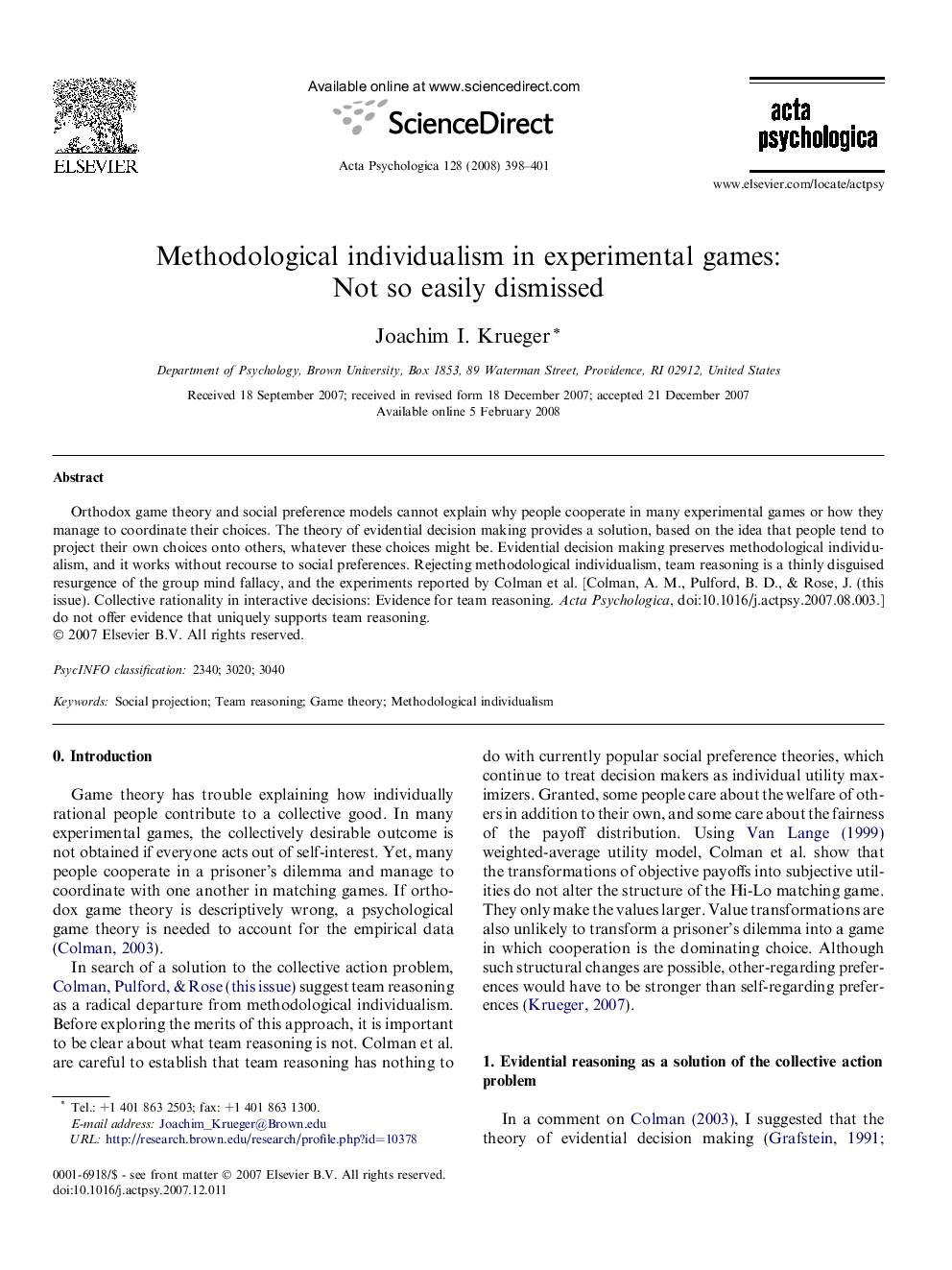| Article ID | Journal | Published Year | Pages | File Type |
|---|---|---|---|---|
| 920476 | Acta Psychologica | 2008 | 4 Pages |
Orthodox game theory and social preference models cannot explain why people cooperate in many experimental games or how they manage to coordinate their choices. The theory of evidential decision making provides a solution, based on the idea that people tend to project their own choices onto others, whatever these choices might be. Evidential decision making preserves methodological individualism, and it works without recourse to social preferences. Rejecting methodological individualism, team reasoning is a thinly disguised resurgence of the group mind fallacy, and the experiments reported by Colman et al. [Colman, A. M., Pulford, B. D., & Rose, J. (this issue). Collective rationality in interactive decisions: Evidence for team reasoning. Acta Psychologica, doi:10.1016/j.actpsy.2007.08.003.] do not offer evidence that uniquely supports team reasoning.
